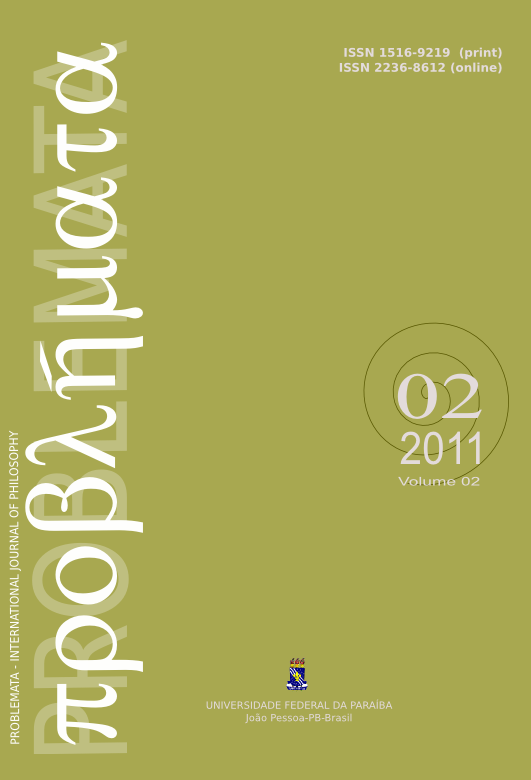SOCRATIC-PLATONIC EPIMELEIA HEAUTOU<a href="http://dx.doi.org/10.7443/problemata.v2i2.10719"><i> <b>[doi: 10.7443/problemata.v2i2.10719]</b></i></a>
DOI:
https://doi.org/10.7443/problemata.v2i2.10719Keywords:
Cuidado de si, ética cristã da carne, estética da existência, Michel Foucault.Abstract
The issue this text is to look critically explain how Foucault drew this relationship between government of others and government itself. Our reading of Foucault texts lead us to believe that any characterization of the christian ethic of meat can be read as a counterpoint to the greek self-care. If this reading is sustainable, we believe that the christian epimeleia ton allon, understood as a set of technologies intended for the subjection, is related to governmentality too narrowly. Our intent is to argue that studies of self-care from classical Greek were a priority alternative to built a self-constitution of a subject not subjected. We will find out to determine how Foucault understood the self-care as a good command of his own passions to the point of proposing an aesthetics of existence as an alternative ethical-political.Downloads
Download data is not yet available.
Downloads
Published
2011-11-16
Issue
Section
Papers
License
Authors who publish with this journal agree to the following terms:
- Authors retain copyright and grant the journal right of first publication with the work simultaneously licensed under a Creative Commons Attribution License that allows others to share the work with an acknowledgement of the work's authorship and initial publication in this journal.
- Authors are able to enter into separate, additional contractual arrangements for the non-exclusive distribution of the journal's published version of the work (e.g., post it to an institutional repository or publish it in a book), with an acknowledgement of its initial publication in this journal.
-
- Authors are permitted and encouraged to post their work online (e.g., in institutional repositories or on their website) prior to and during the submission process, as it can lead to productive exchanges, as well as earlier and greater citation of published work (See The Effect of Open Access).





